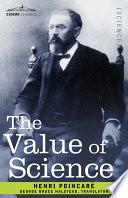
“All that is not thought is pure nothingness”
Source: The Value of Science (1905), Ch. 11: Science and Reality
Context: All that is not thought is pure nothingness; since we can think only thought and all the words we use to speak of things can express only thoughts, to say there is something other than thought, is therefore an affirmation which can have no meaning.
And yet—strange contradiction for those who believe in time—geologic history shows us that life is only a short episode between two eternities of death, and that, even in this episode, conscious thought has lasted and will last only a moment. Thought is only a gleam in the midst of a long night. But it is this gleam which is everything.<!--p.142
